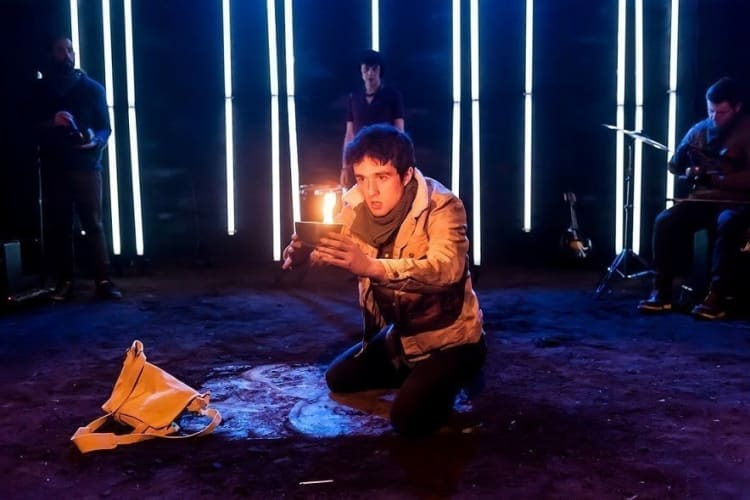The story of Electra is a classic tragedy that has been revisited many times since both Sophocles and Euripides penned it in the 400s BC.
Following in the steps of composers, film makers and playwrights, DumbWise's John Ward now directs his re-working of the tale at London's Bunker Theatre.
Set in modern day Greece with hints of a primordial-come-Mad Max era, the imperative to fulfil destiny, the power of dreams and the influence of oracles do not jar.
This version keeps the original background to explain Electra's lust for vengeance—previously, King Agamemnon, Electra's father, had returned from the wars with his Trojan conquest Cassandra and their two children to be killed by his wife Clytemnestra and her lover Aegisthus, who had taken control of the city of Argos in Agamemnon's absence.
Now, 15 years on, Electra continues to mourn her dead father and the loss of her brother, Orestes, whom she helped escape from the court as a young child.
Here, burnt up by hatred for her mother and Aegisthus, Electra is intent on avenging the murder of her father who has been ignominiously buried outside of the city.
Whilst her sister, Chrys (a calm and composed Megan Leigh Mason), takes a pragmatic approach and hides her feelings for an easier life, Electra refuses to conform and rebels against seemingly everything, restlessly angry all the time.
Ward's Orestes is found and raised by a brotherhood of insurgents living in the mountains and now finds himself as their mascot in a movement against Aegisthus' regime, under which the rich have prospered at the expense of the poor.
Ward's text is a successful if curious mixture of formal English verging on the archaic mixed with 21st century slang and swearing, heavy on cadence and internal rhymes.
To make certain we get the contemporary references, he also name-checks re-writing the narrative, hearts and minds, fake news, a court that leaks information, a government in internal disarray and others. Half as many such punctuations would have been sufficient, not least because at 2 hours 20 minutes the play feels over-long.
Orestes stumbles across Electra by chance, but they don't recognise each other until she has guided him to the tomb of their father, their reunion providing the only genuine expression of love in the play, and all the more moving for being so.
But even brother and sister are at odds in this tragedy that has conflict at every turn, be it between justice and necessity, between loyalty and destiny, between one's duty to self, to family and to state.
The chorus is provided by the revolutionaries, faces masked by scarves, who also provide a score that channels the spirit of punk, underlining the goings-on in the turbulent family and social circles.
Dario Coates gives an excellent performance as Orestes, the lost son torn between his own moral judgment and his faith in the gods whose wishes have to be fulfilled even if they involve matricide.
The mother from hell is played by Sian Martin, a believable performance of a character you could never believe—you would not want to buy a used car from this Clytemnestra.
Ward has written anti-hero Electra as wise beyond her years with wide streaks of teenage belligerence and Lydia Larson inhabits the role completely. Nervously energetic, her delivery is rancorous and unremittingly passionate.
As the play closes, the villains are dead, Aegisthus killed by Orestes as dictated by the Oracle and Clytemnestra is killed by her son to fulfil the dream seen by Electra, in violation of the gods' wish.
This is a powerful piece of writing in which Electra gets what she wants and retribution has been seen to be delivered but such satisfaction for me comes diminished by regret. It is a small body count but honour in vengeance is an obsolete and inherently flawed concept of justice and Electra's victory is an uncomfortable one.




